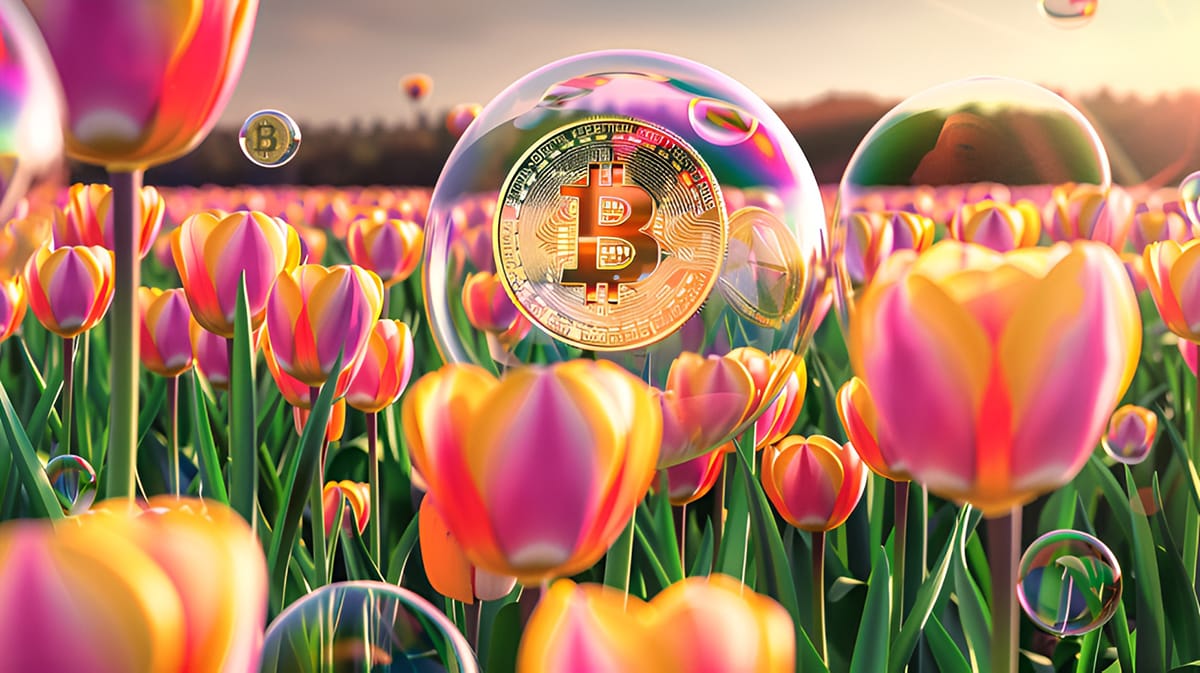The Truth About Bitcoin (7 Myths)

Despite a 15-year history, Bitcoin remains widely misunderstood globally, giving rise to numerous factual inaccuracies regarding its functionality and broader impacts in the world. This article aims to shed light on the most widely-held misconceptions in Bitcoin, with a goal to provide a clearer understanding of its nature and functionality.
🔒 Enhance your self-custody Theya, a collaborative multisig vault.
#1 Bitcoin is anonymous
Bitcoin is pseudonymous not anonymous, meaning your personal identity is not directly linked to your Bitcoin address. Instead, you have a custom identifier for sending and receiving Bitcoin. This pseudonymity ensures that a Bitcoin address cannot be matched to an identifiable person without an additional set of information. This is similar to how email works — everyone has a unique email address to send and receive mail, however your email address is not directly associated with your identity.
#2 Bitcoin is a Ponzi scheme
A Ponzi scheme is a centralized investment scheme that pays our earlier investors with money collected from new investors. These schemes often promise guaranteed returns and rely on large amounts of secrecy to obfuscate their fraud. Contrarily, Bitcoin operates as a decentralized monetary network that is open source and has a publicly verifiable ledger. There is no central authority in Bitcoin and all activity on the network remains transparent on the blockchain. Once you understand these distinctions it becomes obvious Bitcoin’s characteristics and operational model do not align with that of a Ponzi scheme.
#3 Bitcoin has no intrinsic value
Numerous critics argue that Bitcoin’s lack of backing or industrial utility diminishes its intrinsic value. One of the most important lessons of economics is that value is not intrinsic, rather, it is subjective. In other words, all things are valued differently by different people for different reasons. Bitcoin is no different, it derives its value from being a permissionless and decentralized monetary network available to everyone. We encourage those who question Bitcoin’s value to consult with the hundred million people who use Bitcoin on a daily basis.
#4 Bitcoin is bad for the environment
The idea that Bitcoin is bad for the environment is generally unfounded and based on false presumptions. Rather, a growing body of academic research is shining light on the many ways Bitcoin can be considered a positive environmental force. For starters, Bitcoin only consumes roughly 0.2% of the global energy supply and its energy mix is made up of a majority sustainable sources, making it one of the cleanest industries on the planet. Furthermore, new evidence is finding ways in which Bitcoin is accelerating the usage and adoption of renewable energy, paving the way for a carbon neutral future. For a more comprehensive exploration of Bitcoin’s environmental merits, peruse this detailed report from KPMG.
#5 Bitcoin is a bubble
The perception that Bitcoin is a bubble typically arises from the high level of volatility it exhibits. Bitcoin frequently experiences significant price fluctuations, particularly to the upside, prompting many to label it as a bubble. In reality, Bitcoin has gone through multiple market cycles, marked by periods of euphoric price increases and subsequent price corrections. It is imperative to acknowledge that Bitcoin has consistently recovered from its market bottoms and established new all time highs in the years to come. While the short term price swings can give the impression of a bubble, zooming out over Bitcoin’s 15 year history reveals its consistent upward trajectory. Labeling Bitcoin as a bubble overlooks its complex dynamics, underlying technology, and growing investor base.
#6 Bitcoin will be banned
Ultimately, banning Bitcoin is no easy task. This is because Bitcoin is just information, banning it would be as difficult as banning speech or the dissemination of information over the internet — it is technically infeasible in the digital age. If a country were to ban Bitcoin it is more accurately banning itself from the network, since Bitcoin would continue to operate as a global network. Herein lies the advantage inherent to a decentralized network: because the Bitcoin software is being run in all corners of the world, one nation banning it has no material effect on the network's operation. More likely than not, bitcoin will continue to function with little to no disturbance at all.
#7 Bitcoin has no real world applications
The notion that Bitcoin has no real world applications is a highly financially privileged observation to make. When you step outside of the financial privilege granted by the western democracies many of us live in, you see a world of financial disarray. Developing nations lack financial infrastructure leaving many of its population unbanked and to make matters worse, they often deal with severe levels of inflation. People in developing nations are often living under high inflation, capital controls, and authoritarian regimes. Bitcoin is a crucial tool for promoting human rights, greater financial freedom, and economic empowerment for these people. To the billions of people in such circumstances, Bitcoin is not merely an investment, it's a lifeline.
